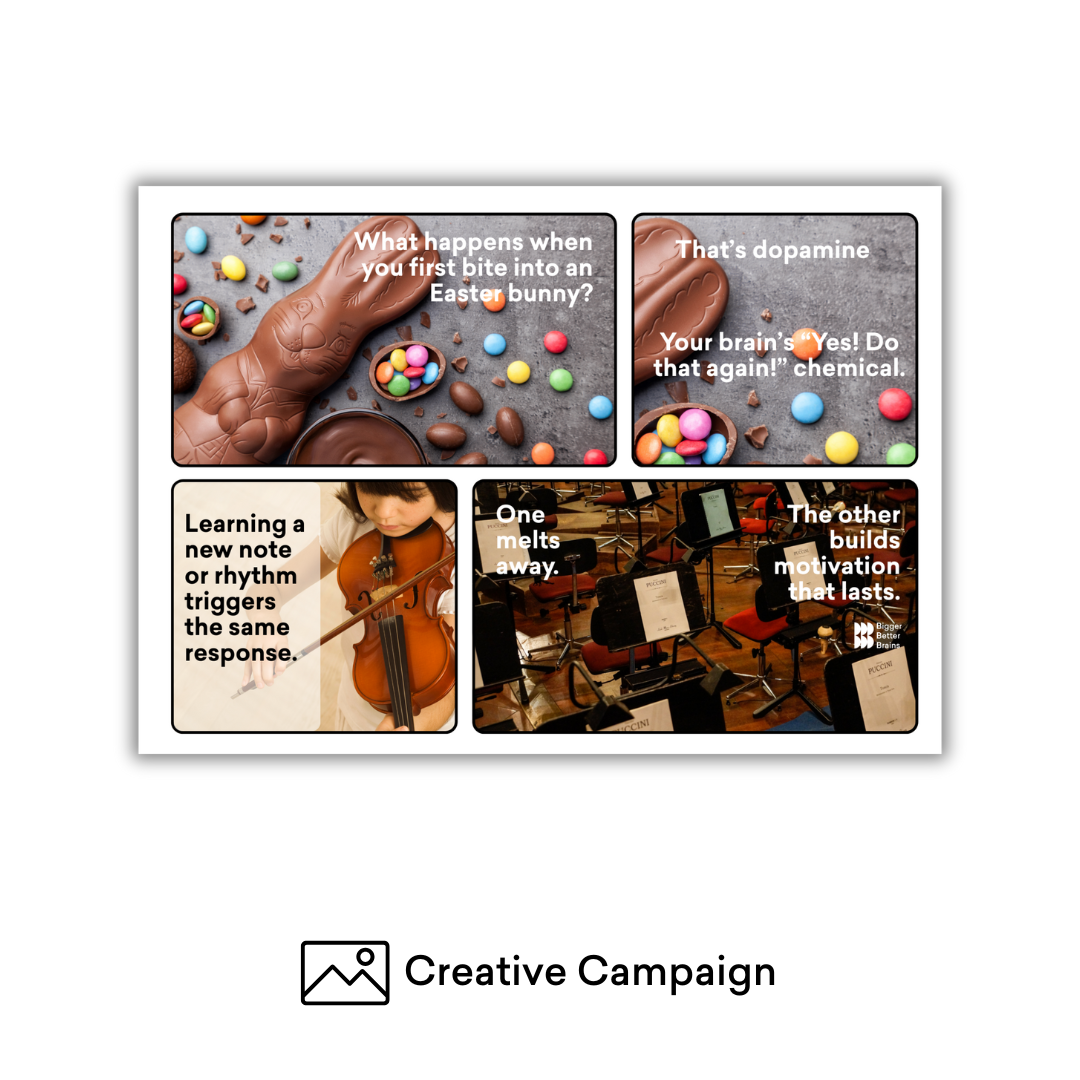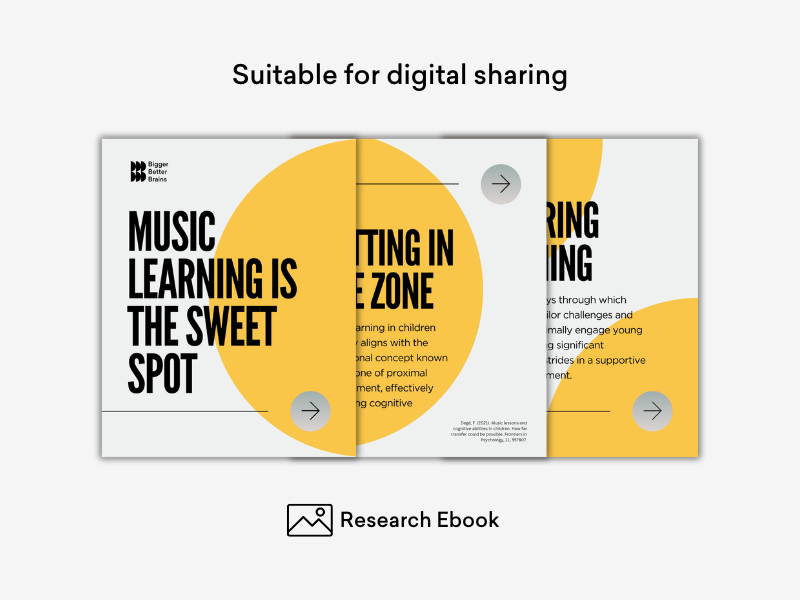Top 7 questions asked by students
Founder of Bigger Better Brains, Dr Anita Collins, receives hundreds of emails from students around the world asking questions about neuromusical research. So she decided to record a short video about the most asked questions she has received.
Who is the video for?
This video could be useful to high school and college students who are
completing a research project about the impact of music learning on brain development
researching a writing assignment on music learning
interested in how scientific research is revealing how our brains use music learning to grow
What questions does Dr Collins answer?
Dr Collins goes through the most asked questions including
To what extent does learning music benefit the human brain?
Is there a difference between playing an instrument and singing on brain development?
What specific parts of the brain do you believe learning music influences?
Does learning music at a young age benefit particular mental skills (eg, improve memory)?
Do you believe that learning music as a young child decreases the odds of having a mental illness in the future?
What studies / research have you personally done on these matters, and do they support your previous views?
Do you have any suggestions of secondary resources or other people that I could interview?
What resources are included and how do I cite them?
Dr Collins has also included one full research paper that you can download and read here. She has annotated the paper with comments and highlighted some good quotes to use in your assignments. The citation for the article in APA style is
Hallam, S. (2010). The power of music: Its impact on the intellectual, social and personal development of children and young people. International Journal of Music Education, 28(3), 269-289.
If your assignment requires the citation in a different style, maybe Harvard or Chicago style, just go to Google Scholar, type in the title of the paper, and when the record comes up, click on the speech marks ( “ ) directly underneath the record and a window will open with lots of different options that you can copy and paste.
What if one of my questions was not answered in the video?
This video is just a starting point so if there are further questions you would like Dr. Collins to answer please email them to hello@biggerbetterbrains.com and make the subject line “BBB Neuromusical Research for Students video – I’ve got another question for you”.
Enjoy!














